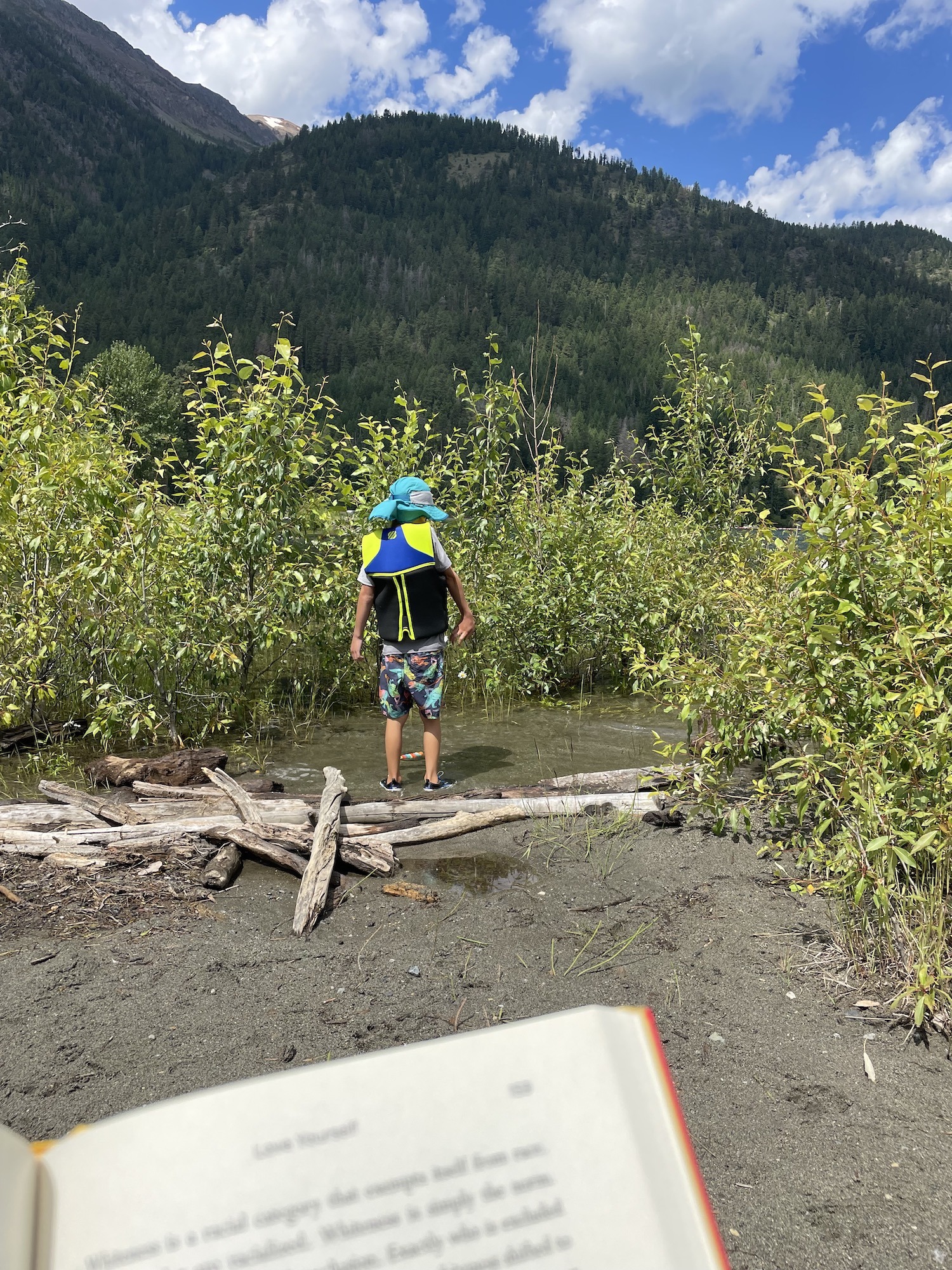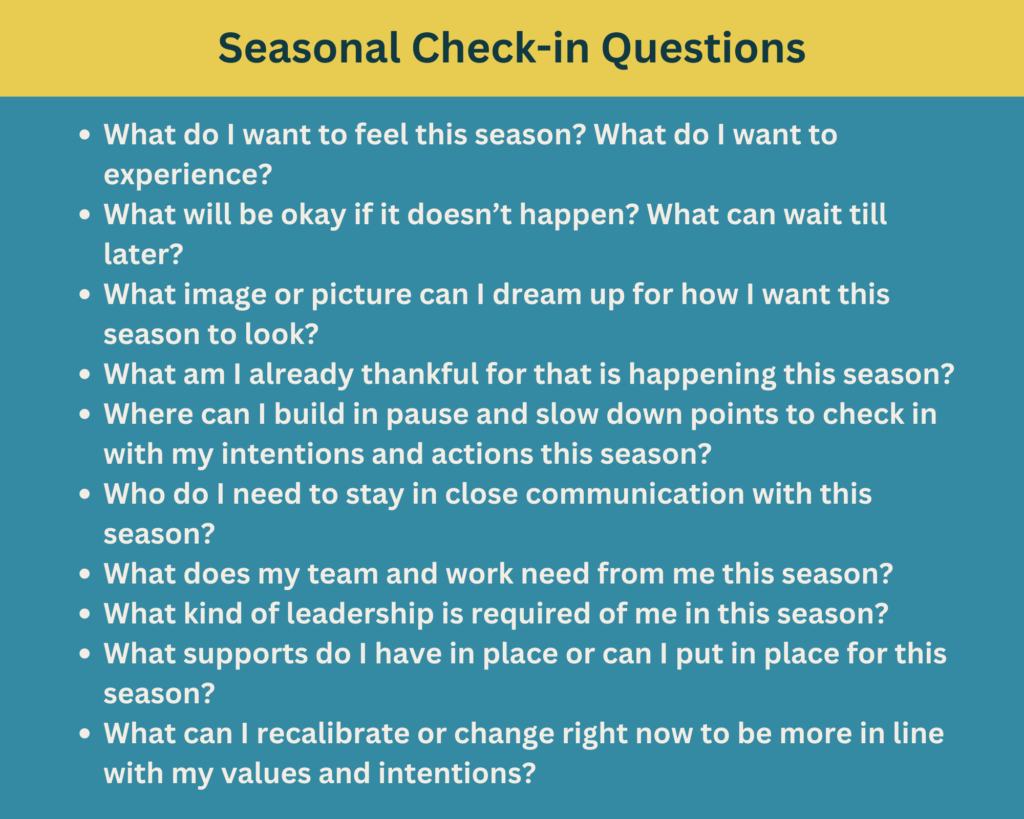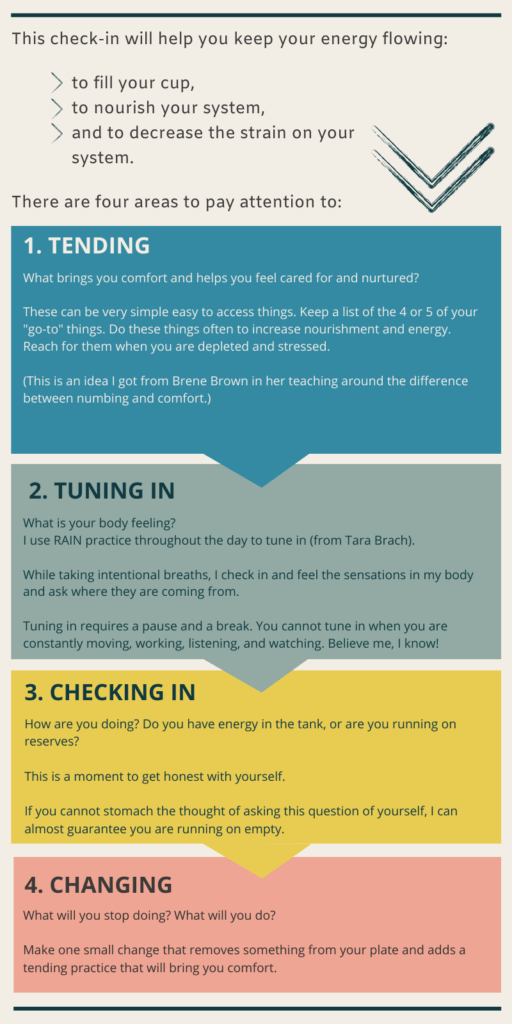It’s the end of a quarter and the end of a season. I am feeling both a wind-up toward the end of the year (and yes the election in the US) and a wind-down into what can and cannot fit into this calendar year’s time.
Lately, I have been working with a few clients, making big things happen in their worlds and organizations or businesses. People are activating new visions and directions, trying out new ways of working in their teams, updating their entire structure, or growing teams and budgets to double the year before.
We are experiencing major transitions and are preparing—this time with a little more awareness—for the possibility of even greater transitions.
I feel it.
Do you feel it?
If you feel the rapidness of transitions and changes on the horizon, the rest of this post is for you (even if you aren’t in a big transformation or high-stress moment).
With all the changes happening, many of the folks I work with are pushing harder than before. They are working to move big ideas into action—fast. They need to show up for many disparate team members to support their emotions through the transitions.
When we push fast, go at a nonstop pace, and feel like a lot of human well-being is at stake, it can lead to overwhelm, nonstop stress, and, if we don’t slow down… burnout.
I am worried that burnout is right around the corner for many of us.
So I wanted to offer an anecdote to burnout that may be different than you are thinking about…
YES to avoid burnout…
↘ find short breaks and pauses,
↘ connect with other passions and identities outside where you spend most of your time,
↘ take longer breaks, and reduce what you are “doing.”
(Okay – sorry – if even reading that is stressful… and you are like, “HOW ANNIE!” Keep reading because the following is a first STEP before you even take a short break.)
What is the number one way to avoid burnout?
Get help.
Getting support is one of the best ways to avoid burnout and reduce the stress of rapid changes and future instabilities.
The belief that leads to burnout
What leads to burnout and overwhelm is the belief (and the action that follows that belief) that we have to be the ones to do it all and get it all done. And even be the ones to carry out the ideal version of our vision for the future.
You may also be inside a culture (country, institution, family) that feeds the belief that it is all on you.
You alone must complete the project, see the vision through, and do it well with little support. If you ask for help, “you are fill in the blank (weak, incompetent, inadequate, powerless).”
When you go it alone this leads to exhaustion and, inevitably, burnout.
(See a definition of burnout in the resources.)
Types of support
At least three kinds of help can pull you back from the edge and bring you back to yourself and life’s natural ebb and flow.
Types of support that reduce stress during challenge and change:
- Listening and accompaniment
- Offering resources, advice, expertise
- Taking on some of the workload
Ideally, you stack ALL of these types of support in times of stress.
Asking for support
At times of overwhelm, it can be hard to ask for support.
However, the first step is noticing you need support and telling someone you need help. This could be a few trusted colleagues or loved ones.
An act of support could be – someone who first helps you think about what help you need!
Here are a few prompts for asking for support – straight from my life!
- “Sashya, I am juggling a lot right now and feeling stretched. Could you help me one day next week with school pick-up so I can be alone for 30 minutes?”
- “Rachel, I can’t finish the notes on my upcoming projects. Do you have room in your scope of work to help me with the notes for my upcoming projects in November and December?”
- “I am hosting a party for our mutual colleague. I am wondering, since you are coming would you have time to pick up banh mi on the way?
Examples
Here are a few examples of support I have asked for and received over the last few years…
- Childcare pick up
- Consulting project facilitation
- Client project thought partnership
- Project management and mapping out new internal processes
- Coaching around business development
Personally, asking for support is vulnerable. I see myself as a caregiver and supporter of others. I see myself as a fixer and problem solver. I do not want to be a burden, and as an only child and a white woman – I am constantly worried I will be seen as self-absorbed! Oh and I love the control that comes with being the one to take care of the project, task and make the decision.
Perhaps you can relate to a few of those?
Why is it hard for you to ask for support?
What are ways you have asked for support in the past that have reduced your stress or helped you carry out your vision?
Caveat
I know there are times when our on-the-ground reality is nearly impossible; even with support, it is exhausting and nonstop. There are times when we are living on the edge and in a time of trauma and survival. This is still a time to seek out whatever support you can and, simultaneously, be compassionate toward yourself, offer grace, and acknowledge that your reality is hard right now. Getting support is not guaranteed to end the suffering, yet we were meant to be in community even when life is painful. If this is where you are right now, may you find people who will accompany and walk alongside you.
Resources
Definition of Burnout by Emily Nagoski and Amelia Nagoski:
“Burnout” can be defined by three components: 1. emotional exhaustion, 2. depersonalization, and 3. a decreased sense of accomplishment.
Emily Nagoski and Amelia Nagoski on Burnout and How to Complete the Stress Cycle
“Anxiety happens when you think you have to figure out everything all at once. Breathe. You’re strong. You got this. Take it day by day.” – Karen Salmansohn
“If you get tired, learn to rest, not to quit.” – Banksy









![How to bring in joy & intention when building partnerships [Leaders Creating Change Series]](https://www.annievonessen.com/wp2015/wp-content/uploads/2023/02/xuke123-_JdB2UenEbA-unsplash-scaled.jpg)







